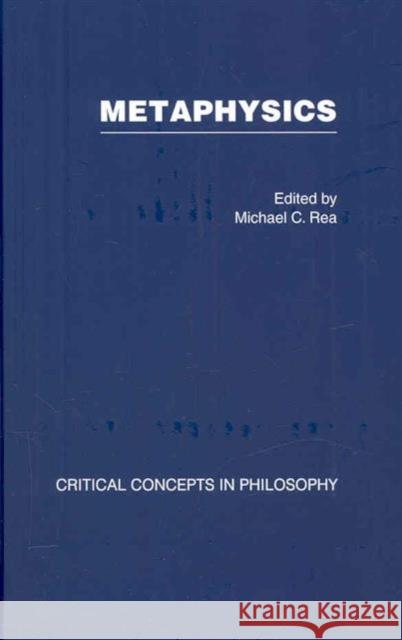Metaphysics » książka
Metaphysics
ISBN-13: 9780415397513 / Angielski / Twarda / 2008 / 2106 str.
Metaphysics, at least roughly speaking, is the systematic investigation of fundamental presuppositions underlying commonsense and scientific views of the world. Most of us believe that we have bodies and minds, that we are free, that some things in the world are composed of other things and that these things interact causally with one another; we believe that, in addition to the "way things are," there are other ways things could have been, and so on. Common sense tells us that things change and time passes, but contemporary physics tells us (or seems to tell us) that past, present, and future are somehow metaphysically on a par that the past isn t "gone" and the future is "already" real. Common sense and science both take it for granted that the world is governed by laws, and that the laws in some sense represent how things must go in the world (as opposed simply to telling us how they in fact happen to go). Metaphysicians investigate all of these assumptions, and more. They ask what it is to be a body or a mind, and what the relation between body and mind might be; they ask what freedom consists in, and whether freedom is possible; they ask about the nature and possibility of causation, change, and the passage of time; they try to figure out what it takes to be a law of nature and whether the laws of nature might be necessary or contingent; and so on. This four-volume collection will gather together many of the most important classic and contemporary writings on these and other central topics in metaphysics. Unlike some of the other collections in this series, the classic writings will not occupy their own volume (or even their own section); rather, they will be sprinkled throughout as appropriate to the topics under consideration. Below is a tentative list of volume-titles, along with select tentative section headings (to give some indication of the topics that will be covered in each volume). Structure: Vol. I: Foundations Meta-Ontology Propositions, States of Affairs, and Events Universals, Properties, and Kinds Substances, Bundles, and Substrata Vol. II: Metaphysics of Modality Possible Worlds Actualism and Possibilism Essentialism Causation and Laws of Nature Reduction and Supervenience Vol. III: Time and Identity Time Individuation Composition and Material Constitution Change and Persistence Realism, Anti-Realism, and Vagueness Vol. IV: God and Persons The Existence of God Mind and Body Personhood and the Self Fatalism, Determinism, and Free Agency"
Metaphysics, at least roughly speaking, is the systematic investigation of fundamental presuppositions underlying commonsense and scientific views of the world. Most of us believe that we have bodies and minds, that we are free, that some things in the world are composed of other things and that these things interact causally with one another; we believe that, in addition to the "way things are", there are other ways things could have been, and so on. Common sense tells us that things change and time passes, but contemporary physics tells us (or seems to tell us) that past, present, and future are somehow metaphysically on a par—that the past isn’t "gone" and the future is "already" real. Common sense and science both take it for granted that the world is governed by laws, and that the laws in some sense represent how things must go in the world (as opposed simply to telling us how they in fact happen to go). Metaphysicians investigate all of these assumptions, and more. They ask what it is to be a body or a mind, and what the relation between body and mind might be; they ask what freedom consists in, and whether freedom is possible; they ask about the nature and possibility of causation, change, and the passage of time; they try to figure out what it takes to be a law of nature and whether the laws of nature might be necessary or contingent; and so on.
This four-volume collection will gather together many of the most important classic and contemporary writings on these and other central topics in metaphysics. Unlike some of the other collections in this series, the classic writings will not occupy their own volume (or even their own section); rather, they will be sprinkled throughout as appropriate to the topics under consideration. Below is a tentative list of volume-titles, along with select tentative section headings (to give some indication of the topics that will be covered in each volume).
Structure:
Vol. I: Foundations
• Meta-Ontology
• Propositions, States of Affairs, and Events
• Universals, Properties, and Kinds
• Substances, Bundles, and Substrata
Vol. II: Metaphysics of Modality
• Possible Worlds
• Actualism and Possibilism
• Essentialism
• Causation and Laws of Nature
• Reduction and Supervenience
Vol. III: Time and Identity
• Time
• Individuation
• Composition and Material Constitution
• Change and Persistence
• Realism, Anti-Realism, and Vagueness
Vol. IV: God and Persons
• The Existence of God
• Mind and Body
• Personhood and the Self
• Fatalism, Determinism, and Free Agency











